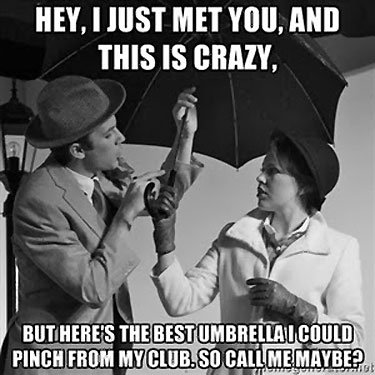“Sun Tzu With a Cup of Earl Grey”
Lit Crit, P.G. Wodehouse, Psmith
Ted Scheinman, a few months back, penned a special tribute to Psmith, P.G. Wodehouse’s protagonist most notable for coolness and competence.
[T]he author calls Psmith his only character based on a single, clear referent. “Lord Emsworth, Jeeves, and the rest of my dramatis personae had to be built up from their foundations,†Wodehouse writes, “but Psmith came to me ready-madeâ€:
A cousin of mine, who had been at Winchester, happened to tell me one night of Rupert D’Oyly Carte, the son of the Savoy Opera’s D’Oyly Carte, a schoolmate of his.
Rupert D’Oyly Carte was long, slender, always beautifully dressed and very dignified. His speech was what is known as orotund, and he wore a monocle. He habitually addressed his fellow Wykehamists as “Comrade,†and if one of the masters chanced to inquire as to his health, would reply “Sir, I grow thinnah and thinnah.â€
In dress an Edwardian dandy, in speech some strange admixture of Socrates, Pseudolus, Swift, Keats, and Groucho Marx, Psmith fiddles on the idioms and cultural assumptions of the previous age in rhythms that baffle and thereby outmatch any members of the ancien régime who stand between him and leisure — or who offer an irresistible target. By the time a schoolmaster, or a bank manager (Psmith in the City), or a Manhattan mobster (Psmith, Journalist) has recovered from the intimidating distractions of Psmith’s mien, the battle is already won. It is nearly too fitting that Psmith’s model was a D’Oyly Carte, and thereby directly associated with the money and production-apparatus behind Gilbert and Sullivan’s operettas. Psmith mocks the Victorians by his very existence; he skewers them with a rapier as sharp as anything in the G&S armory. …
There is a permanent adolescence in Wodehouse, adolescence itself being a daily rebellion against social strictures and top-down unpleasantness in general. At day’s end, it is Wodehouse’s central irony that the last wave of Victorians made this permanent adolescence possible. Psmith, in turn, maintains his signature cool by “never being surprisedâ€: his mantra, requisitioned in true socialist fashion from Conan Doyle, is “never to confuse the improbable with the impossible,†and though Psmith enjoys describing his nervous constitution as “delicate,†it is this philosophical refusal of surprise that sustains him. Psmith and Wodehouse’s revolutionaries are not lobbing bombs or knocking down the Bastille. They are the blithe boys who never grew up, buoyed on imperial wealth and the residue from half-remembered codes — the “feudal spirit†and all that rot — who, barring the monsoon, buzz over to the Drones Club most days to play indoor cricket with yesterday’s bread rolls for balls.
Hat tip to Walter Olson.




